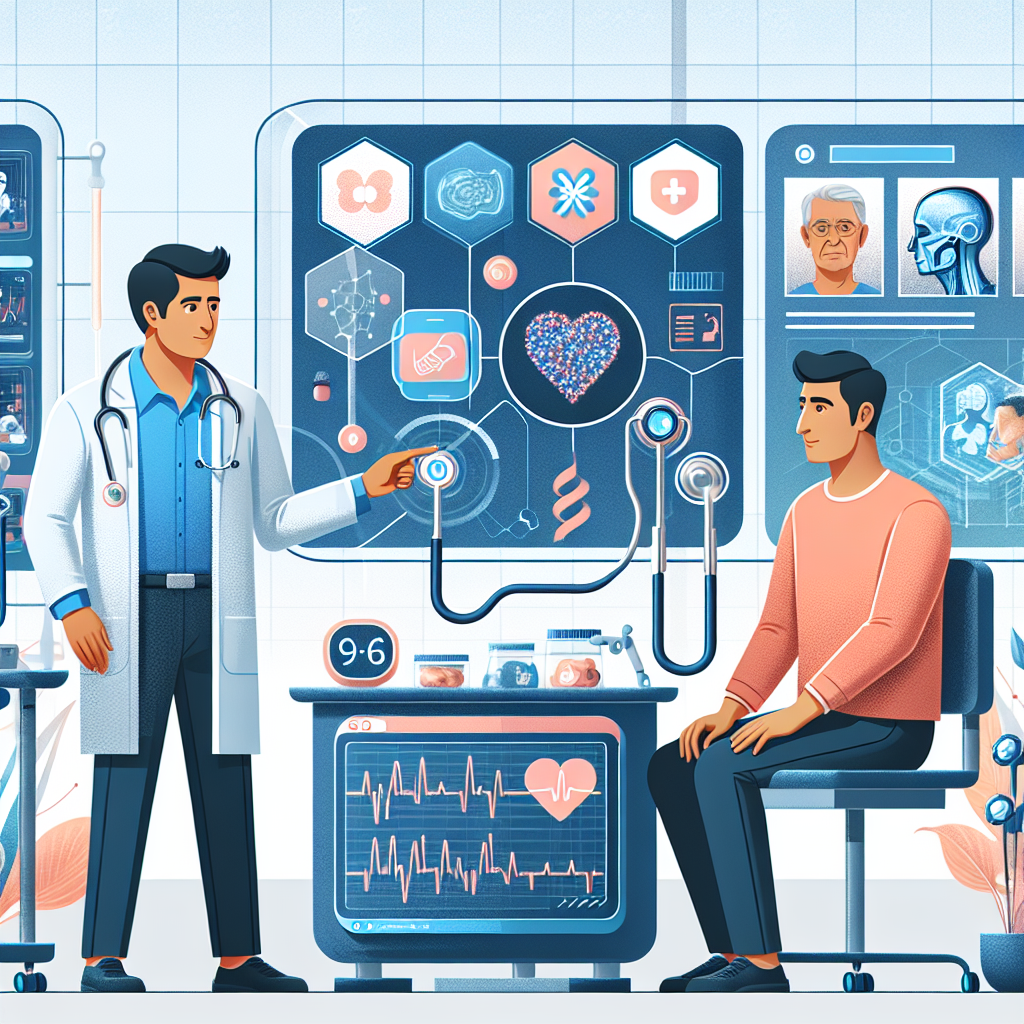Artificial Intelligence (AI) has been making significant strides in the field of healthcare, redefining the traditional doctor-patient relationship and revolutionizing the way medical care is provided. From diagnosing diseases to personalizing treatment plans, AI has the potential to enhance the quality of care, improve patient outcomes, and reduce healthcare costs. In this article, we will explore the impact of AI in healthcare and how it is reshaping the doctor-patient relationship.
AI in Healthcare: The Evolution of Medicine
The use of AI in healthcare has been steadily increasing over the past few years, with hospitals and healthcare providers adopting AI-powered technologies to improve patient care. AI has the ability to analyze vast amounts of medical data, identify patterns and trends, and provide valuable insights that can help physicians make more informed decisions. From medical imaging to drug discovery, AI is transforming every aspect of healthcare.
One of the key areas where AI is making a significant impact is in diagnosing diseases. AI-powered algorithms can analyze medical images, such as X-rays, MRIs, and CT scans, and identify abnormalities that may be missed by human radiologists. This can help in early detection of diseases, leading to better treatment outcomes and improved patient survival rates.
AI is also being used to personalize treatment plans for patients. By analyzing a patient’s medical history, genetic makeup, and lifestyle factors, AI can recommend the most effective treatment options tailored to the individual patient. This personalized approach to healthcare can lead to better outcomes and reduced side effects, as treatments are more targeted and precise.
In addition to diagnosing diseases and personalizing treatment plans, AI is also being used to improve patient engagement and adherence to treatment regimens. Chatbots and virtual assistants powered by AI can provide patients with information about their condition, remind them to take their medications, and answer any questions they may have. This can help patients stay on track with their treatment and improve their overall health outcomes.
Redefining the Doctor-Patient Relationship
The traditional doctor-patient relationship is based on face-to-face interactions, where the doctor listens to the patient’s symptoms, performs a physical examination, and makes a diagnosis based on their medical expertise. However, with the advent of AI in healthcare, this relationship is evolving.
AI-powered technologies are enabling patients to access medical information and advice remotely, without the need for an in-person visit to the doctor’s office. Telemedicine platforms powered by AI can connect patients with healthcare providers via video calls, chat, or phone, allowing them to receive medical advice and treatment from the comfort of their own homes. This can be especially beneficial for patients in rural areas or those with mobility issues who may have difficulty accessing healthcare services.
AI is also empowering patients to take control of their own health by providing them with personalized health insights and recommendations. Wearable devices equipped with AI algorithms can track a patient’s vital signs, monitor their activity levels, and provide real-time feedback on their health status. This can help patients make informed decisions about their health and take proactive steps to prevent illness.
Furthermore, AI is helping doctors provide more efficient and effective care to their patients. By analyzing patient data and medical records, AI can identify trends and patterns that may indicate a potential health issue, allowing doctors to intervene early and prevent complications. This can lead to better outcomes for patients and reduce the burden on healthcare providers.
FAQs
Q: Is AI replacing doctors in healthcare?
A: AI is not replacing doctors in healthcare, but rather complementing their expertise and improving the quality of care. AI-powered technologies can assist doctors in diagnosing diseases, personalizing treatment plans, and improving patient outcomes.
Q: How is patient data protected in AI-powered healthcare systems?
A: Patient data is protected in AI-powered healthcare systems through strict privacy and security measures. Healthcare providers must comply with regulations such as HIPAA to ensure that patient data is securely stored and only accessed by authorized personnel.
Q: What are the potential risks of using AI in healthcare?
A: Some potential risks of using AI in healthcare include data privacy concerns, algorithm bias, and the potential for errors in diagnosis or treatment recommendations. It is important for healthcare providers to carefully evaluate AI technologies and ensure that they are used responsibly and ethically.
Q: How can patients benefit from AI in healthcare?
A: Patients can benefit from AI in healthcare by receiving more personalized treatment plans, accessing medical advice remotely, and taking control of their own health. AI-powered technologies can help patients make informed decisions about their health and improve their overall well-being.
In conclusion, AI is redefining the doctor-patient relationship in healthcare by enabling more personalized, efficient, and effective care. By harnessing the power of AI, healthcare providers can improve patient outcomes, reduce healthcare costs, and empower patients to take control of their own health. As AI continues to advance, the future of healthcare looks brighter than ever before.

